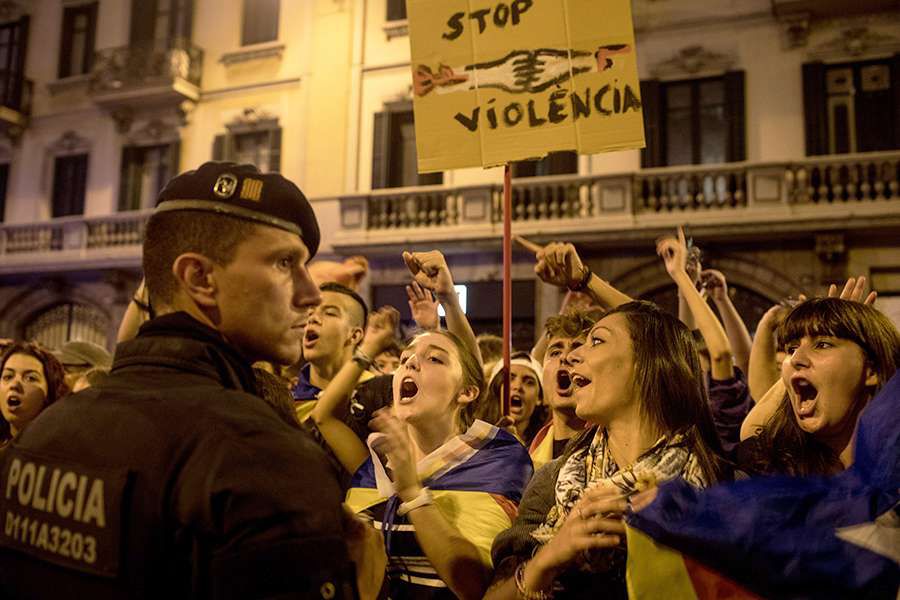Catholic leaders voiced pleas for peace after a Catalonian regional referendum vote on secession from Spain drew a strong police reaction. “The situation of violence we have experienced today in Catalonia is deplorable,” Cardinal Juan Omella of Barcelona said Oct. 2. “We need to find a peaceful and democratic solution to our situation. Let us entrust this situation to the God of peace.”
Archbishop Jaume Pujol of Tarragona, who is president of the Tarragona bishops’ conference, also deplored the situation. “We must stop the violence and confrontations,” he said.
Spain’s Constitutional Court has ruled the referendum illegal. The European Commission’s chief spokesman said the vote was not legal, but said the rival sides should talk and avoid violence, the Washington Post reports. About 2 million citizens in the region voted for independence Sunday, while about 177,000 voted against it. Turnout was about 42 percent of registered voters.
The facts of the situation are disputed. Catalan officials said 319 of about 2,300 polling places were closed by police, while Spanish officials said the figure was 92. Police entered polling places seeking to shut them down, only for backers of the vote to conceal the ballot boxes and ballots.
Clashes between police and voters were recorded on video, showing some police beating citizens with rubber truncheons and dragging them by their hair. About 900 people suffered minor injuries in brawls with police, with two injured seriously. Madrid officials said 39 police officers were treated for injuries, with another 392 suffering scrapes and bruises.
Carles Puigdemont, the regional president, announced success on Sunday night after only a few thousand votes had been counted. He said that he would present the results to the Catalan parliament. The parliament had previously said it would seek independence if the vote favored it.
Shortly before polling places opened, the Catalan regional government had said that any registered voter could cast their vote at any location rather than their assigned polling places. However, the process involved several irregularities, such as problems registering voters and problems checking voter identification.
Spain’s interior minister has said the 5,000 extra police officers would remain in Catalonia as long as possible. Spanish authorities said the police response was professional and proportionate, according to the Associated Press. Puigdemont said Spanish Prime Minister Mariano Rajoy should accept international mediation, characterizing the secession effort as an issue relevant to all of Europe. Catalonia has considerably more autonomy than other regions of Spain, but the central government in Madrid has control over taxation, financial policy and infrastructure projects.

